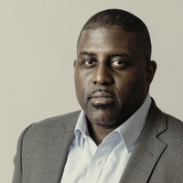 John Ochieng/SOPA Images/LightRocket via Getty Images John Ochieng/SOPA Images/LightRocket via Getty ImagesTHE SCOOP NAIROBI — Executives at two of Kenya’s largest media houses are considering legal challenges to what they believe is a politically-charged move to centralize government advertising. The executives at Nation Media Group (NMG) and Mediamax fear the move by President William Ruto’s administration could starve them of much-needed revenues and boost a more sympathetic rival, sources close to the discussions have told Semafor Africa. Late last year, the Ruto administration awarded a two-year contract for the printing and distribution of MyGov, a pullout magazine containing government advertisements, to The Star, which is Kenya’s fourth most-read newspaper with only 3% of the market in 2022, behind The Nation, Standard, and Kiswahili language publication Taifa Leo. The Star had the lowest bid for the tender, at 9 million Kenyan shillings ($55,000) per weekly edition. The Nation, The Standard, and Mediamax’s People Daily, which had previously co-distributed MyGov, all bid for the new contract, quoting prices between two to three times higher, according to a government source. A circular dated Jan. 23 informed officials of ministries and agencies that they would not be able to advertise in any other publication besides The Star. Distribution of the government magazine by The Star began in January. To boost circulation, The Star made its Tuesday edition, which contains the pullout, completely free. The Government Advertising Agency did not respond to queries from Semafor Africa. David Omwoyo, chief executive of the Media Council of Kenya (MCK), the independent industry regulator, told Semafor Africa that the body had not yet received any formal complaints related to The Star’s publication and distribution of MyGov. KNOW MORE Government advertising accounts for around 30% of the revenues of major newspapers in Kenya. As in much of the rest of the world, however, print circulation has been steadily declining and legacy media companies are feeling the pinch. Ruto’s administration is keen on halving the government’s overall advertising, which would further impact major media houses. The government has also been under pressure to pay the 1.7 billion Kenyan shillings ($10.5 million) it owes media companies in Kenya for services already rendered, with media houses blaming the delayed payments for exacerbating financial pressures on them. | 









